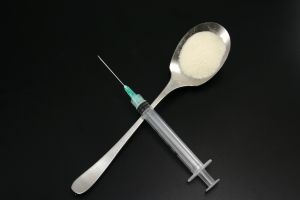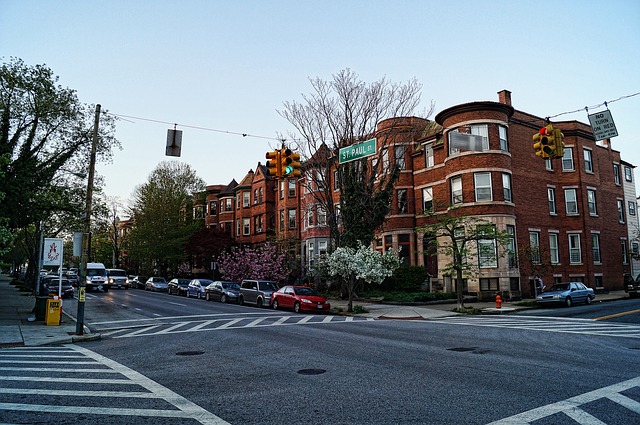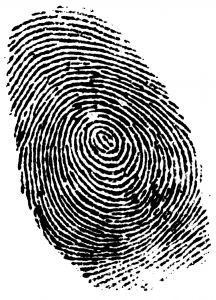 A routine traffic stop over the weekend led Maryland police to nearly 100 grams of heroin as well as a forged oxycodone prescription. The traffic stop took place in Annapolis and resulted in the arrest of 3 Maryland residents for various criminal offenses including drug possession, theft, and drug possession with intent to distribute. Although the traffic stop was routine, the events that followed the stop and led police to the drugs were hardly routine, and could raise multiple legal issues. Annapolis police stopped the bright green Lincoln at around 5 p.m. for an undisclosed traffic violation. The undisclosed traffic violation could be for anything from a broken taillight to failure to stop at a stop sign but chances are that the bright green car caught the eye of the Annapolis cops. As many criminal lawyers know, when a car raises red flags police typically will not wait for a traffic infraction to occur before making a traffic stop. Rather they will make the stop and then figure out a believable traffic infraction later.
A routine traffic stop over the weekend led Maryland police to nearly 100 grams of heroin as well as a forged oxycodone prescription. The traffic stop took place in Annapolis and resulted in the arrest of 3 Maryland residents for various criminal offenses including drug possession, theft, and drug possession with intent to distribute. Although the traffic stop was routine, the events that followed the stop and led police to the drugs were hardly routine, and could raise multiple legal issues. Annapolis police stopped the bright green Lincoln at around 5 p.m. for an undisclosed traffic violation. The undisclosed traffic violation could be for anything from a broken taillight to failure to stop at a stop sign but chances are that the bright green car caught the eye of the Annapolis cops. As many criminal lawyers know, when a car raises red flags police typically will not wait for a traffic infraction to occur before making a traffic stop. Rather they will make the stop and then figure out a believable traffic infraction later.
After Annapolis police made the traffic stop they approached the vehicle and learned that the driver was driving with a suspended license. Police also discovered that the passenger had three outstanding criminal bench warrants for his arrest. Right there, the police had probable cause to arrest both occupants of the car, which they did. Search incident to arrest also allowed police to search the vehicle, and this led police to an unlabeled bottle filled with Percocet and a digital scale. Percocet is a brand name prescription drug consisting of a combination of 5 to 10 mgs of the narcotic oxycodone, and 500 mgs of acetaminophen. Police also searched the passenger incident to his arrest and found a stolen oxycodone prescription in his pocket. The driver was charged with 2 crimes, driving on a suspended license and drug possession, while the passenger was charged with theft. Both were arrested, and legally speaking it appears that arrests of the passenger and driver will hold up in court. The heroin bust did not directly involve the stopped green Lincoln or the passenger and the driver of the Lincoln. Rather, the heroin arrestee was a woman who approached the Lincoln while police were conducting their investigation. The circumstances surrounding the heroin arrest appear to have legal issues.
Continue reading →
 Criminal Defense Lawyer Blog
Criminal Defense Lawyer Blog


 The city of Washington D.C. has agreed to settle four civil lawsuits over false DUI convictions. The civil claims for damages were filed back in 2010 by 4 men whose DUI convictions were tainted by inaccurate breath alcohol testing machines. The city has agreed to pay a total of $20,000 plus attorney’s fees to the 4 plaintiffs. Two of the plaintiffs will receive $5000, and the other two will receive $8,000 and $2,000 respectively. The lawsuit alleged that city officials and police were aware that the breath alcohol testing machines were flawed, but continued to use them in criminal DUI prosecutions. As early as 2008 an independent expert informed the city that their breath alcohol machines were not providing accurate results for a variety of reasons. The machines used in D.C. are similar to the Intoxilyzer machines used in Maryland, and require regular maintenance and calibration. D.C. officials failed to do either, but that does not even tell half the story of the city’s dishonest and fraudulent behavior.
The city of Washington D.C. has agreed to settle four civil lawsuits over false DUI convictions. The civil claims for damages were filed back in 2010 by 4 men whose DUI convictions were tainted by inaccurate breath alcohol testing machines. The city has agreed to pay a total of $20,000 plus attorney’s fees to the 4 plaintiffs. Two of the plaintiffs will receive $5000, and the other two will receive $8,000 and $2,000 respectively. The lawsuit alleged that city officials and police were aware that the breath alcohol testing machines were flawed, but continued to use them in criminal DUI prosecutions. As early as 2008 an independent expert informed the city that their breath alcohol machines were not providing accurate results for a variety of reasons. The machines used in D.C. are similar to the Intoxilyzer machines used in Maryland, and require regular maintenance and calibration. D.C. officials failed to do either, but that does not even tell half the story of the city’s dishonest and fraudulent behavior.  On Sunday night in Washington D.C., Nationals 19 year old baseball phenom Bryce Harper came up to bat in the bottom of the first inning. Veteran Phllies pitcher, Cole Hamels then proceeded to throw his first pitch directly at the lower back of Harper. Harper bent over in obvious pain for a few seconds, trotted off to first base, and then scored the first run of the game a few pitches later. After the game, the veteran pitcher admitted that he purposely threw the pitch in Harper’s direction, and fully intended to hit him. Hamels stated that throwing at Harper was his way of welcoming the rookie sensation to the major leagues. The commissioner of baseball however was not impressed with Hamels’ actions nor his honesty, and suspended the pitcher for 5 games.
On Sunday night in Washington D.C., Nationals 19 year old baseball phenom Bryce Harper came up to bat in the bottom of the first inning. Veteran Phllies pitcher, Cole Hamels then proceeded to throw his first pitch directly at the lower back of Harper. Harper bent over in obvious pain for a few seconds, trotted off to first base, and then scored the first run of the game a few pitches later. After the game, the veteran pitcher admitted that he purposely threw the pitch in Harper’s direction, and fully intended to hit him. Hamels stated that throwing at Harper was his way of welcoming the rookie sensation to the major leagues. The commissioner of baseball however was not impressed with Hamels’ actions nor his honesty, and suspended the pitcher for 5 games.  The Maryland Legislature recently passed a bill that will lower the maximum penalty for possession of marijuana from 1 year in jail to 90 days in jail. Maximum fines for marijuana possession will also drop from $1000 to $500. The bill was signed into law by Governor O’Malley and will go into effect in October of 2012. The Maryland marijuana bill only applies to simple possession of less than 10 grams of the plant, a compromise between the two legislative chambers. The Maryland Senate wanted the new bill to apply to possession of any amount less than 14 grams of marijuana, or one half ounce, but the Maryland House wanted reduced punishments only for less than 7 grams, or one quarter ounce of marijuana. The Maryland law makers eventually agreed on the 10 gram limit, and the bill easily passed both chambers by a vote of 41-5 in the Senate, and 92-31 in the House.
The Maryland Legislature recently passed a bill that will lower the maximum penalty for possession of marijuana from 1 year in jail to 90 days in jail. Maximum fines for marijuana possession will also drop from $1000 to $500. The bill was signed into law by Governor O’Malley and will go into effect in October of 2012. The Maryland marijuana bill only applies to simple possession of less than 10 grams of the plant, a compromise between the two legislative chambers. The Maryland Senate wanted the new bill to apply to possession of any amount less than 14 grams of marijuana, or one half ounce, but the Maryland House wanted reduced punishments only for less than 7 grams, or one quarter ounce of marijuana. The Maryland law makers eventually agreed on the 10 gram limit, and the bill easily passed both chambers by a vote of 41-5 in the Senate, and 92-31 in the House. The Baltimore Police department has not been meeting the terms of a settlement regarding illegal arrests according to the ACLU. The settlement arose out of a 2006 lawsuit, which alleged a pattern of thousands of unlawful arrests for various non violent, low level crimes such as drug possession, trespassing, and loitering in Baltimore City. The civil lawsuit was filed by the ACLU on behalf of 14 people that were arrested in Baltimore without probable cause. The lawsuit stated that due to Baltimore City’s zero tolerance policy, Baltimore police officers began unlawfully arresting people on the street at an alarming rate.
The Baltimore Police department has not been meeting the terms of a settlement regarding illegal arrests according to the ACLU. The settlement arose out of a 2006 lawsuit, which alleged a pattern of thousands of unlawful arrests for various non violent, low level crimes such as drug possession, trespassing, and loitering in Baltimore City. The civil lawsuit was filed by the ACLU on behalf of 14 people that were arrested in Baltimore without probable cause. The lawsuit stated that due to Baltimore City’s zero tolerance policy, Baltimore police officers began unlawfully arresting people on the street at an alarming rate.  A recent Maryland Court of Appeals decision has declared that it is an unconstitutional invasion of privacy for police officers to obtain DNA samples from arrested individuals absent a criminal conviction. It has previously been the standard practice of the Maryland State Police and other police departments around the state to obtain DNA samples from any suspect charged with burglary, and certain violent crimes such as assault, rape, homicide, and aggravated assault. Under the recent ruling, Maryland police departments must now wait until prosecuting lawyers secure a criminal conviction before they can legally obtain DNA samples from a defendant. The ruling by the Maryland Court of Appeals overturned the 2009 rape conviction of Alonzo Jay King Jr. when the court concluded that DNA samples that led to King’s rape conviction were the fruits of an illegal seizure pursuant to the Fourth Amendment of the U.S. Constitution. King’s DNA sample was obtained after he was arrested for an unrelated assault case. The high court ruling has had an immediate impact upon law enforcement, as the Maryland state police department, headquartered in Pikesville, Maryland, has already instructed its employees to suspend DNA sampling of arrested suspects.
A recent Maryland Court of Appeals decision has declared that it is an unconstitutional invasion of privacy for police officers to obtain DNA samples from arrested individuals absent a criminal conviction. It has previously been the standard practice of the Maryland State Police and other police departments around the state to obtain DNA samples from any suspect charged with burglary, and certain violent crimes such as assault, rape, homicide, and aggravated assault. Under the recent ruling, Maryland police departments must now wait until prosecuting lawyers secure a criminal conviction before they can legally obtain DNA samples from a defendant. The ruling by the Maryland Court of Appeals overturned the 2009 rape conviction of Alonzo Jay King Jr. when the court concluded that DNA samples that led to King’s rape conviction were the fruits of an illegal seizure pursuant to the Fourth Amendment of the U.S. Constitution. King’s DNA sample was obtained after he was arrested for an unrelated assault case. The high court ruling has had an immediate impact upon law enforcement, as the Maryland state police department, headquartered in Pikesville, Maryland, has already instructed its employees to suspend DNA sampling of arrested suspects. Baltimore County Police have identified the main suspect in a string of recent Baltimore area burglaries. The burglaries have resulted in the theft of valuable items such as electronic office equipment, black checks, food, office supplies, postage stamps and money. The main suspect is apparently a 48 year old man from Baltimore that has also been implicated in other burglaries throughout Maryland. The recent Baltimore burglaries occurred on or about April 3 and included the breaking and entering of two medical offices. The first office was a podiatry center and the second burglarized office was a medical office used for testing and treatment of hearing disorders. Both offices used and stored valuable medical equipment.
Baltimore County Police have identified the main suspect in a string of recent Baltimore area burglaries. The burglaries have resulted in the theft of valuable items such as electronic office equipment, black checks, food, office supplies, postage stamps and money. The main suspect is apparently a 48 year old man from Baltimore that has also been implicated in other burglaries throughout Maryland. The recent Baltimore burglaries occurred on or about April 3 and included the breaking and entering of two medical offices. The first office was a podiatry center and the second burglarized office was a medical office used for testing and treatment of hearing disorders. Both offices used and stored valuable medical equipment. A Maryland man was recently arrested for selling marijuana and other drugs from his ice cream truck according to police in Charles County. The alleged Maryland drug dealer was arrested based on a tip from Crime Solvers. The tip apparently informed police that the 20 year old man had been illegally selling packets of marijuana while at the same time legally selling frozen treats in southern Maryland neighborhoods. Police responded to the tip and sent a investigative unit to attempt to observe the ice cream drug dealer in action. Police investigative units apparently were not able to catch the Maryland man actually performing a hand to hand transaction with a would be marijuana buyer, but they were able to secure an arrest with the help of a canine police unit.
A Maryland man was recently arrested for selling marijuana and other drugs from his ice cream truck according to police in Charles County. The alleged Maryland drug dealer was arrested based on a tip from Crime Solvers. The tip apparently informed police that the 20 year old man had been illegally selling packets of marijuana while at the same time legally selling frozen treats in southern Maryland neighborhoods. Police responded to the tip and sent a investigative unit to attempt to observe the ice cream drug dealer in action. Police investigative units apparently were not able to catch the Maryland man actually performing a hand to hand transaction with a would be marijuana buyer, but they were able to secure an arrest with the help of a canine police unit. Maryland trespass laws have recently become a hot topic after two men were arrested for trespassing at Oriole Park at Camden Yards by Baltimore City police officers. The first incident occurred on opening day as the Orioles took on the Minnesota Twins in front of a rare sellout crowd. A 26 year old man from Severn, Maryland ran on to the field during the game dressed in a cape. Unfortunately for the Severn man the cape did not come complete with flying capabilities, and the trespasser was arrested shortly after entering the field of play. The aspiring superhero turned fourth outfielder managed to avoid criminal prosecution, albeit to none of his own credit. Lawyers from the Baltimore prosecutor’s office apparently failed to file charges due to an office miscommunication. The second incident occurred just 3 days later when a 19 year old Baltimore man dashed onto the field during the 12th inning of a frustrating loss to the Yankees. The 19 year old Baltimore man was not wearing a costume and did not receive the benefit of a prosecutorial miscommunication, as he now faces charges of trespass, disorderly conduct, and disturbing the peace.
Maryland trespass laws have recently become a hot topic after two men were arrested for trespassing at Oriole Park at Camden Yards by Baltimore City police officers. The first incident occurred on opening day as the Orioles took on the Minnesota Twins in front of a rare sellout crowd. A 26 year old man from Severn, Maryland ran on to the field during the game dressed in a cape. Unfortunately for the Severn man the cape did not come complete with flying capabilities, and the trespasser was arrested shortly after entering the field of play. The aspiring superhero turned fourth outfielder managed to avoid criminal prosecution, albeit to none of his own credit. Lawyers from the Baltimore prosecutor’s office apparently failed to file charges due to an office miscommunication. The second incident occurred just 3 days later when a 19 year old Baltimore man dashed onto the field during the 12th inning of a frustrating loss to the Yankees. The 19 year old Baltimore man was not wearing a costume and did not receive the benefit of a prosecutorial miscommunication, as he now faces charges of trespass, disorderly conduct, and disturbing the peace.